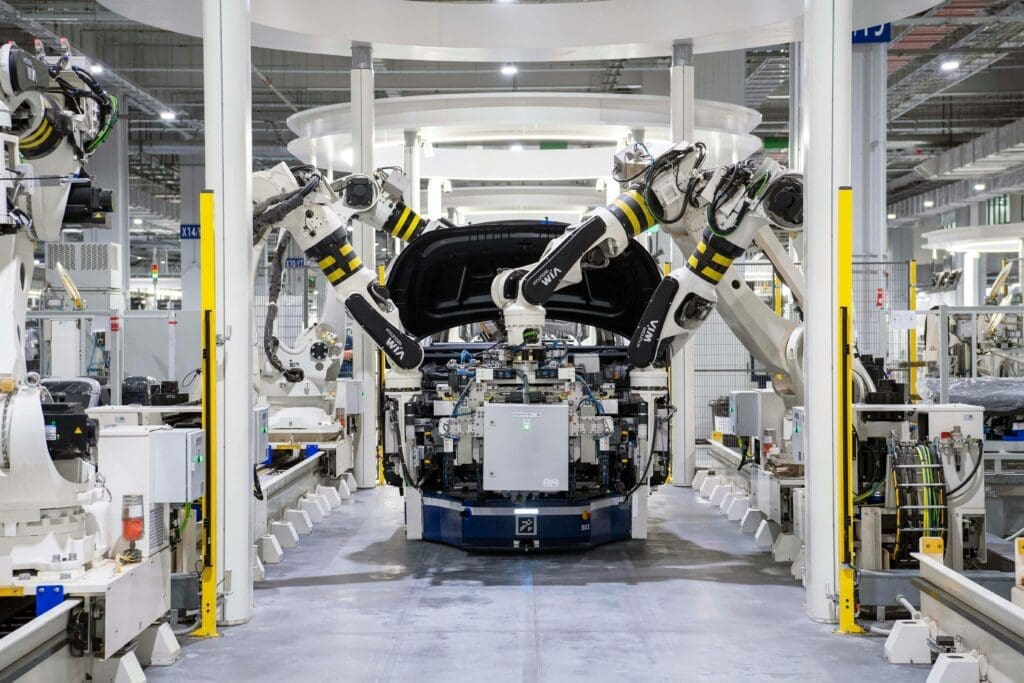Smart technology in manufacturing is transforming the industrial landscape by integrating cutting-edge technologies with traditional production methods. As we step into 2025, businesses are increasingly looking at innovative solutions to enhance efficiency, reduce costs, and improve product quality. Here are seven key smart manufacturing trends set to shape the industry in the coming year.

1. The Rise of Digital Twins for Precision Monitoring
Digital twin technology is rapidly becoming a cornerstone of smart manufacturing. These virtual models replicate physical assets, allowing businesses to simulate production, test innovations, and monitor equipment in real time. With advancements in computing power and data integration, digital twins in 2025 will be more sophisticated than ever, minimising downtime and boosting product quality. As companies continue to seek optimised manufacturing equipment for sale, digital twins will play a crucial role in enhancing operational efficiency and reducing costly errors.
2. AI and Machine Learning-Driven Automation
Artificial Intelligence (AI) and Machine Learning (ML) are at the forefront of manufacturing transformation, enabling real-time decision-making and predictive analytics. In 2025, expect to see a more widespread implementation of AI-driven automation, optimising production schedules, reducing waste, and enhancing quality control. With self-learning robotic assembly lines and AI-powered predictive maintenance, businesses can significantly improve productivity. The demand for smart technology & manufacturing equipment for sale incorporating AI capabilities is set to rise, helping companies stay ahead of competitors.
3. Strengthened Cybersecurity in Smart Manufacturing
With the increasing reliance on interconnected systems, cybersecurity is a growing concern in smart manufacturing. As cyber threats become more advanced, businesses must invest in robust security frameworks to protect sensitive data and critical operations. In 2025, manufacturers will adopt AI-powered security solutions, blockchain technology for secure data transactions, and zero-trust security models. Companies that proactively address these risks will not only protect their infrastructure but also ensure trust among customers and stakeholders.
4. Sustainability and Green Manufacturing Initiatives
Sustainability is now a primary objective for manufacturers rather than a secondary consideration. Businesses are integrating smart technology to reduce energy consumption, waste, and carbon emissions. AI-driven energy management systems and circular production models that prioritise recyclability will gain traction in 2025. As government regulations tighten and consumer demand for eco-friendly products grows, manufacturers will seek innovative solutions, including energy-efficient manufacturing equipment for sale, to meet sustainability goals while maintaining profitability.
5. The Evolution of Advanced Robotics, Cobots, and Delta Robots
Automation is evolving beyond traditional industrial robots, with articulated robots, collaborative robots (cobots), and delta robots reshaping manufacturing operations.
Articulated robots, which feature multiple joints resembling a human arm, are widely used in industries like automotive, aerospace, and electronics for tasks such as welding, assembly, and material handling. These robots provide exceptional flexibility and precision, making them an essential component of modern smart manufacturing.
Cobots, designed to work alongside human operators, enhance efficiency and safety by assisting in repetitive or strenuous tasks. In 2025, improvements in AI and sensor technology will make cobots even more intuitive and adaptable, ensuring broader accessibility for small and medium-sized enterprises (SMEs).
Meanwhile, delta robots, known for their high-speed and precise movements, are increasingly used in packaging, pick-and-place operations, and the food and pharmaceutical industries. Their lightweight structure and rapid response capabilities allow them to handle delicate components with extreme precision. As the industry advances, businesses will increasingly look for smart technology & manufacturing equipment for sale that integrates articulated robots, cobots, and delta robots to optimise production lines.
6. Industrial Internet of Things (IIoT) Enhancing Connectivity
The Industrial Internet of Things (IIoT) is reshaping manufacturing by enabling real-time data collection and predictive maintenance. By connecting sensors, machines, and devices, IIoT allows manufacturers to monitor every aspect of production, improving efficiency and reducing unexpected downtime. In 2025, IIoT will be essential for optimising asset tracking, energy usage, and supply chain management. As demand grows, businesses will seek IIoT-compatible manufacturing equipment for sale to fully leverage these benefits.
7. Supply Chain Visibility Through Smart Technology
Recent global disruptions have highlighted the importance of resilient supply chains. In 2025, smart manufacturing will focus on technologies that enhance transparency and adaptability. AI, blockchain, and IIoT will provide real-time tracking, predictive demand planning, and seamless supplier collaboration. Companies investing in smart supply chain solutions will be better positioned to handle disruptions and maintain steady production.
The Future of Smart Manufacturing
As smart manufacturing continues to evolve in 2025, businesses must embrace these emerging trends to remain competitive. From AI-powered automation and advanced robotics to sustainable initiatives and enhanced cybersecurity, the industry is moving towards greater efficiency, connectivity, and resilience. Companies seeking the latest smart technology & manufacturing equipment for sale will be better equipped to optimise operations and drive innovation in an increasingly dynamic market.

